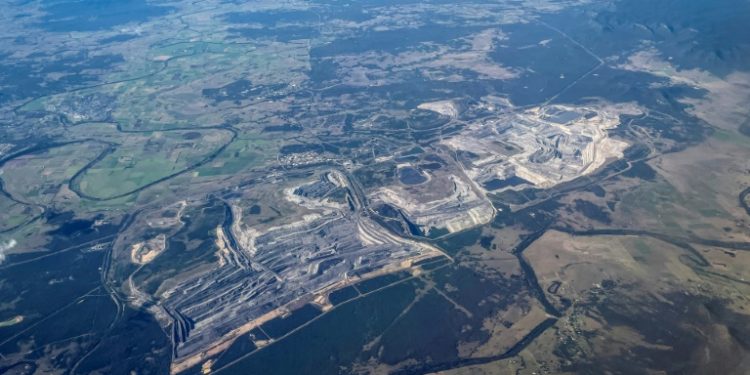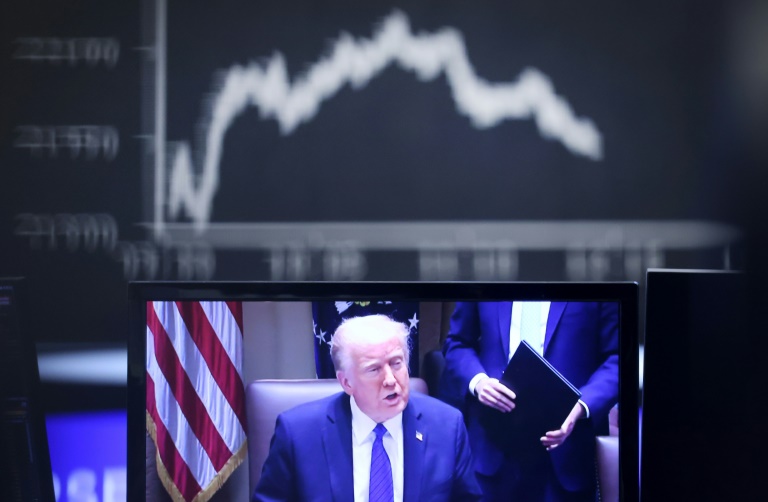Zurich (AFP) – Swiss commodities giant Glencore announced Wednesday that it had decided against spinning off its coal business for now after consulting shareholders who view the polluting fossil fuel as a cash-generating activity. Glencore completed its takeover of the steelmaking coal unit of Teck Resources in July following a protracted battle over the business with the Canadian company. The Swiss commodities trading and mining group had considered merging the newly acquired business, Elk Valley Resources, with its own coal activities and spinning it off.
But Glencore said that after consulting its shareholders, most expressed a preference for retaining the coal and carbon steel materials business. “I certainly am convinced that it’s the right decision,” Glencore CEO Gary Nagle said in a conference call. The company has argued it needs the cash flow from its coal mines to invest in raw materials useful for the green transition, such as copper and cobalt. “Following extensive consultation with our shareholders, whose views were very clear, and our own analysis, the Board believes retention offers the lowest risk pathway to create value for Glencore shareholders today,” chairman Kalidas Madhavpeddi said.
“The expected cash generative capacity of the coal and carbon steel materials business significantly enhances the quality of our portfolio,” Madhavpeddi added in a statement. The company said shareholders preferred to keep the coal business “primarily on the basis that retention should enhance Glencore’s cash generating capacity to fund opportunities in our transition metals portfolio” such as copper. They also concluded that it would “accelerate and optimise the return of excess cash flows to shareholders”. “There’s no question that keeping it in Glencore’s hands is positive from an ESG (Environment, Social and Governance) perspective and from a value perspective,” Nagle said.
Glencore shares gained around 3.1 percent in late afternoon trading on the London Stock Exchange. The firm’s CEO deemed that “to keep these assets in Glencore’s hands rather than spinning out because of our responsible run down strategy” was “the way to go” — saying that even some “left-leaning NGOs” pushed it to retain its coal activities. But the company’s strategy to hold on to the highly-polluting resource has been criticised by environmental charities and shareholders, who pointed out that coal is banned from some investment portfolios. Norway’s sovereign wealth fund, the world’s largest, has excluded Glencore shares from its portfolio since 2020.
While some investors may be “disappointed that they won’t have the option to remove the coal arm from the rest of the business,” said Hargreaves Lansdown analyst Matt Britzman, “operationally this decision makes sense.” “The coal portfolio is a cash cow,” he said.
Oil, gas and coal companies are under pressure to transition away from fossil fuels, the biggest contributor to climate change. While Glencore’s Australian rival Rio Tinto and British group Anglo American are exiting coal, the Swiss company has a “managed decline” strategy to ensure a “responsible” phase out of its coal operations. The Australasian Centre for Corporate Responsibility (ACCR), which advises shareholders on company climate transition plans, urged Glencore to better explain its long-term intentions for coal.
“Glencore needs to move swiftly and give investors much needed visibility on how it plans to manage its increased exposure to climate transition risk,” which has risen since the Teck coal takeover, the Australasian Centre for Corporate Responsibility (ACCR) said in a statement. Glencore said Wednesday that while it has decided to keep coal, its board “preserves the option to consider a demerger of all or part of this business in the future if circumstances change.”
But the ACCR pointed out that the metallurgical coal mines Glencore acquired from Teck had an average life of 31 years, with most extending beyond 2050 — compared to 13 years for Glencore’s existing assets. Coal generates key revenue for the group, whose profits boomed in 2022 when prices for the combustible soared following Russia’s invasion of Ukraine. Separately, Glencore posted a $233-million loss for the first half of the year, after earning $4.6 billion over the same period last year, as commodity prices fell, “particularly thermal coal.”
© 2024 AFP






















